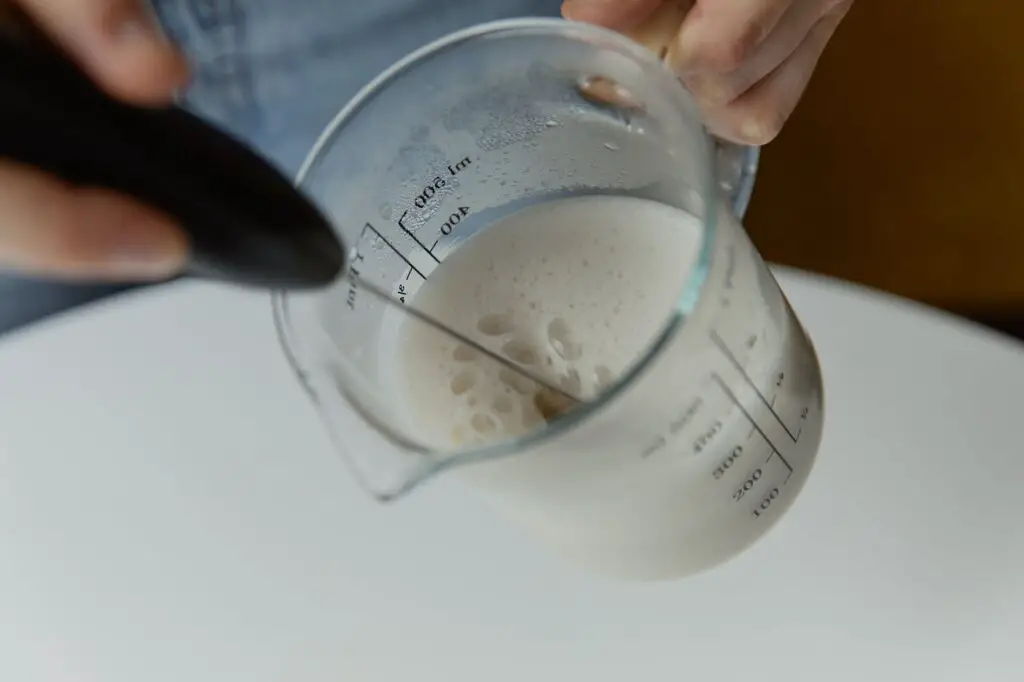Dogs rarely pay attention to what they’re supposed to eat and drink. They see something they like the look of, and nine times out of ten, it’s in their mouths and down their throats before you can stop them. We’ve experienced it several times with our dog. Usually, it’s something we’ve accidentally left out on the counter, or he’s found something to snaffle when we’re out on a walk. We’ve almost always been able to laugh these occasions off, but sometimes it can be scary, especially when we’re not sure if what our dog’s just eaten is dangerous and could make them sick.
We’ve never been too worried about giving milk to our dog, and sometimes we’ve actively allowed him to drink up the last few spoonfuls in the bottom of a bowl. Still, since writing this series of blog posts on the types of things dogs can and can’t eat, we wanted to double-check that we weren’t putting our dog’s health in danger by giving him an occasional dairy-related treat. And milk is a divisive subject anyway, even on the subject of whether humans should be drinking it. Some argue that once mammals are weaned from their mothers (dogs included), there’s no need to drink milk again, let alone the milk of another species. These people would also argue that lactose intolerance is one example proving this but can dogs drink lactose-free milk, or should owners avoid giving it to their pets entirely?
What is Lacto-free milk, and how is it different to regular milk?
Regular cow milk contains lactose. According to the NHS, the body digests lactose using lactase, turning it into glucose and galactose, which are then quickly absorbed into the blood. The NHS explains that if people don’t produce enough lactase, the lactose stays in the digestive system where bacteria ferment it, causing several possible complaints, including flatulence, bloating, stomach cramps, diarrhoea and nausea. And it’s the same for dogs and cats, too.
Lacto-free milk is processed by filtering out the lactose, meaning that even those with insufficient lactase can enjoy milk without suffering the after-effects of intolerance. Lactose-free milk also tends to taste sweeter than cow’s milk.
Can dogs drink lactose-free milk?
When puppies drink their mother’s milk, they have lots of lactose enzymes in their system, which help break down lactase. Once a dog has been weaned, however, they can lose the ability to do this, resulting in an upset stomach whenever they drink milk. Many adult dogs are lactose intolerant, but it may be that your dog can drink milk without issue. Most owners find out by accident (literally, by lots of accidents around the house until the stomach settles again…).
Most dogs should be fine drinking lactose-free milk, but it doesn’t necessarily mean that you should encourage your dog to drink it. Lactose-free milk still contains fats and sugars, which can be detrimental to a dog’s health, especially when given in large amounts. It shouldn’t be used to replace the water in a dog’s diet, especially if the dog has a weight-management problem or chronic illness managed via diet. Some dogs may also have a broader intolerance to dairy, superseding lactose intolerance, so don’t automatically assume that even products without lactose will be fine for your dog. If you decide to try Lacto-free milk, give your pet a tiny amount in the beginning and watch to see if it has any effect on their stomach.
Should dogs drink lactose-free milk?
Ideally, not. Water is always going to be the best thing to give your dog. As owners, we tend to overcomplicate matters. We put ourselves in our dog’s paws and imagine how boring it must be not having the range of things to eat and drink that we do. In reality, dogs have a much simpler palate, and water is the best thing you can offer them. But of course, we like to treat our pets so if you do want to try lactose-free milk; then it’s unlikely to cause a problem in most dogs. Offer them a tiny amount and then perhaps increase it to a couple of tea or tablespoons worth, depending on the size of your dog. However, try not to do this too regularly, and keep it to the occasional reward.
We hope you found this article helpful. If you’re looking for more advice on different items your dog can eat and drink, you may discover can my dogs eat frozen sprats? And can my dog chew on pinecones? Useful too.

